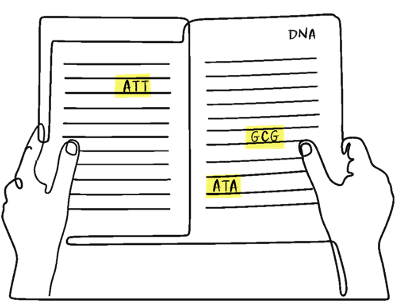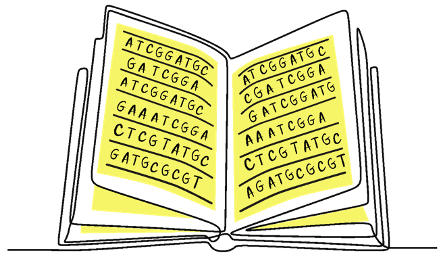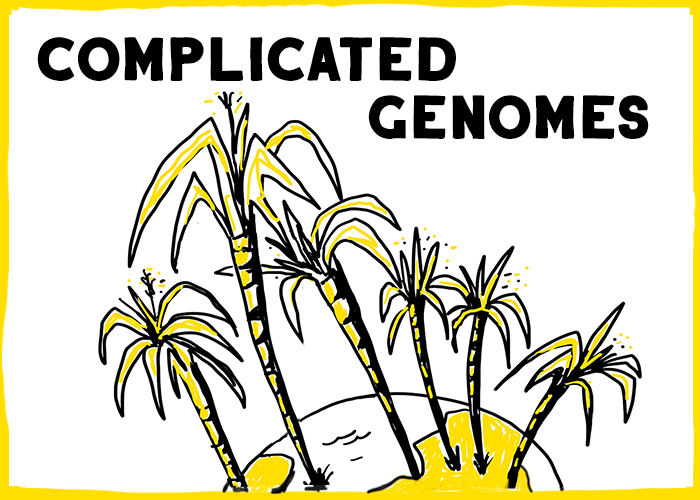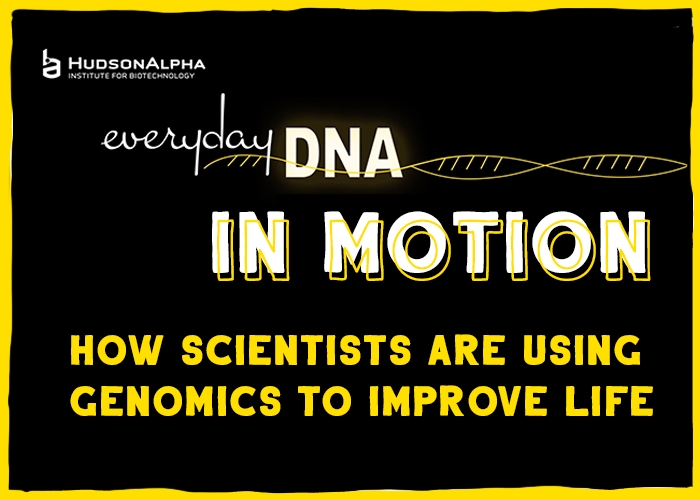An Everyday DNA blog article
By: Sarah Sharman, PhD, Science writer

At-home DNA testing. Familial DNA searching. Elective genomic screening.
Chances are you have probably heard these terms in the news, on your favorite crime drama, or on a television commercial. Advances in DNA sequencing technology have made it faster and more affordable, propelling genomics into mainstream criminology and medicine. However, with so many genetic services available, many people may not know what genetic testing does, or why there are so many different types of tests.
What is genetic testing?
Genetic testing is used to identify changes in a person’s DNA, called DNA variants. DNA is made up of four nucleotide bases represented by A, C, G, and T. The DNA code carries genetic instructions for producing proteins which perform all of the body’s functions. Some DNA variants can cause disease or increase a person’s risk of developing disease.
There are many types of genetic tests that each use a different approach to look at DNA and each look at different proportions of the genetic code. The two main categories of genetic tests are genotyping and sequencing. We will review each one in more detail below.
Genotyping
 Genotyping is a genetic testing technology that looks for specific variants in a particular area of your genetic code. If you think of your DNA as a book, genotyping would analyze only certain words throughout the book for spelling errors. In this way, the technology is limited only to those specific variants that the genotyping test is designed to detect.
Genotyping is a genetic testing technology that looks for specific variants in a particular area of your genetic code. If you think of your DNA as a book, genotyping would analyze only certain words throughout the book for spelling errors. In this way, the technology is limited only to those specific variants that the genotyping test is designed to detect.
A genotyping array can simultaneously analyze hundreds or thousands of variants throughout the genome that are known to correlate with disease. For individuals with undiagnosed disease symptoms or a family history of a genetic disease, genotyping plays a vital role in diagnosing disease, determining an individual’s risk of developing certain diseases, and can also be useful in medical treatment planning.
Individuals without disease symptoms or a family history of disease may choose to have elective genomic screening performed to determine their risk of developing common genetic diseases or to determine if certain medications and dosages will be effective and beneficial to them.
Elective genomic screening arrays, like direct-to-consumer genetic testing kits and genetic clinical laboratory population-health arrays, usually look for variants in 59 genes which have been found to be causative of certain diseases. Most of the 59 genes are associated with either a hereditary form of cardiovascular disease or cancer risk. Individuals who have variants in one or more of these genes can work with their doctor to make a plan for reducing their disease risk through medical intervention and lifestyle changes.
Sequencing
The other major DNA testing technology, called DNA sequencing, determines the exact sequence of an individual’s DNA. Back to our book analogy, genotyping identifies and analyzes specific, pre-selected words throughout the book. Sequencing looks at every letter in a specific sentence, paragraph, chapter, or even the entire book.
Sequencing technology is more robust than genotyping because it is not limited to specific, predetermined variants. Certain types of sequencing can identify variants in parts of the genome like introns that other tests would not be able to target. The two types of sequencing commonly used in genetic diagnosis are whole exome sequencing and whole genome sequencing.
Whole Exome Sequencing
The exome is the part of your complete genome that contains the instructions for creating proteins. Whole exome sequencing analyzes an individual’s exome and currently has the ability to look at ~20,000 protein coding genes. While this may seem like a lot of genes, the exome only actually represents less than two percent of the genome. In this way, whole exome sequencing is like analyzing the chapter titles of a book.
Whole Genome Sequencing
 The most robust genetic testing technology currently available is whole genome sequencing. This type of test sequences, or reads, an individual’s entire genetic code, nearly 3 billion A’s, C’s, G’s, and T’s. With whole genome sequencing it is like you are analyzing an entire book from cover to cover.
The most robust genetic testing technology currently available is whole genome sequencing. This type of test sequences, or reads, an individual’s entire genetic code, nearly 3 billion A’s, C’s, G’s, and T’s. With whole genome sequencing it is like you are analyzing an entire book from cover to cover.
Physicians can examine an individual’s whole genome in search of certain variants in the code. Discovering particular disease-causing variants in an individual’s genetic code can provide a more accurate and pointed diagnosis for undiagnosed illness.
Whole genome sequencing can also uncover any genetic predispositions for various illnesses like heart disease and certain types of cancer.


